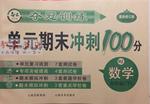题目内容
【题目】 阅读线面材料,在空白处填上适当的单词(一个)或括号内单词的正确形式
Once upon a time there was a rich merchant 【1】had four wives. He loved the 4th wife the most. He took great care of her and gave her nothing 【2】the best. He also loved the 3rd wife very much. He was very
【3】(pride) of her and always wanted to show off her to his friends. He also loved his 2nd wife. She is
【4】_very considerate person, always patient and in fact is the merchant’s close friend. 【5】 the merchant faced some problems, he always turned to his 2nd wife and 【6】 would always help him out and tide(帮助渡过) him 【7】difficult times. Now, the merchant’s 1st wife is a very loyal partner and has made great 【8】(contribute) in maintaining his wealth and business as well as 【9】(take) care of the household.【10】, the merchant did not love the first wife and although she loved him deeply, he hardly took notice of her.
【答案】
【1】who
【2】but
【3】proud
【4】a
【5】When/Whenever
【6】she
【7】through/over
【8】contributions
【9】taking
【10】However
【解析】
【1】who这里who引导定语从句修饰前面的名词a rich merchant。
【2】but nothing but 只有,仅仅。
【3】proud be proud of 以…为骄傲。
【4】a 句意:他的第二个妻子是一个很会体贴人的人。这里用不定冠词a表一个。
【5】When/Whenever 这里用When/Whenever 引导状语从句,意思是:每当有问题时,他就会求助于第二个妻子。
【6】she 这里用代词she代替第二个妻子。
【7】through/over 句意:帮助他度过艰难的岁月,through/over是介词,通过的意思。
【8】contributions make great contributions 短语,做出巨大的贡献。
【9】taking as well as 表并列,maintaining his wealth and business 理财,管理生意和持家方面有很多的贡献,是并列的结构,前面是maintaining,后面因为应该用动词的-ing形式taking。
【10】However 句意:但是他不爱第一个妻子,他几乎从不注意她。前后表转折,后面有逗号, 所以用However。

 夺冠训练单元期末冲刺100分系列答案
夺冠训练单元期末冲刺100分系列答案 新思维小冠军100分作业本系列答案
新思维小冠军100分作业本系列答案【题目】目前,学校存在少数学生考试作弊现象。某英文杂志社拟对此现象向中学生征文,标题是“My Opinion on Cheating in Examinations”。请根据下列提示用英语写一篇征文稿。
内容要点如下:
主要原因 | 考试偏多、偏难 |
不用功、懒惰 | |
取悦父母、老师 | |
个人看法 | 作弊不对,违反校规 |
要诚实,努力学习 | |
……(其他看法) |
注意:1.短文必须包括所有内容要点,可适当发挥;
2.短文标题与开头已为你写好,不计入总词数;
3.词数:100左右。
4.参考词汇:作弊 cheat(v.)
My Opinion on Cheating in Examinations
It is known to us all that some students cheat in examinations at school.
_______________________________________________________________________________
_______________________________________________________________________________
_______________________________________________________________________________
_______________________________________________________________________________
_______________________________________________________________________________
_______________________________________________________________________________
_______________________________________________________________________________